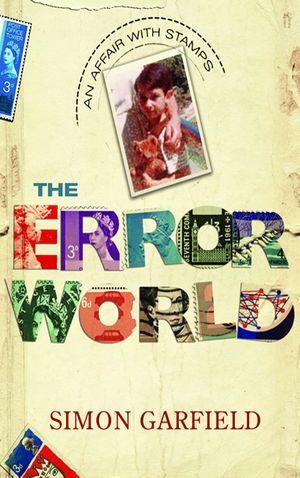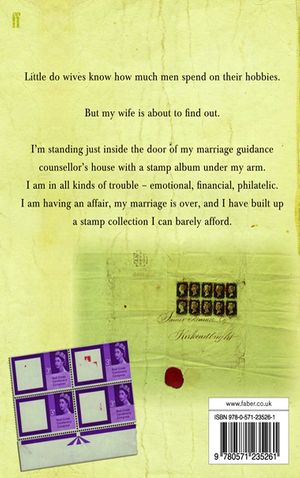The Error World
The Error World
About the book
The Error World is a book about obsession and desire, and the search for fulfillment. It first came to life in Granta magazine, when the editor Ian Jack thought that my passion for rare postage stamps – specifically stamps with errors on them – might make an interesting piece. The more I thought about it, and the more I wrote, I realized that stamps and collecting had been an integral part of my life since I was a young child, and I was only just beginning to work out why. The Granta piece was well received, and it was clear to me that I had only just touched the surface.
The Error World is an attempt to explore several themes: how the passions one develops as a child don’t really leave us; how a mania for collecting may be explained in psychological and emotional terms; and how – and this sounds grand – stamps may work as a metaphor for life.
But at its heart The Error World is a memoir, a unique personal account. It begins at a marriage guidance session and ends with the sale of my rare stamps, and en route I try to discover a little more about myself. There are many diversions, but at its root is that great and real thing that afflicts men of a certain age – the mid-life crisis. The book is personal but I hope universal, and I intend it to be both funny and honest. All men are passionate about at least one thing, and some are passionate about many: their lovers, their sports, their cars, their collections, their work. The Error World considers these passions, and the treacherous destinations to which they may lead.
Extract
Chapter 7
Heinz
In biology lessons I was taught that the big human limb joints worked like elaborate machines. The shoulder, elbow, knee and ankle, an intricate system of pulleys and weights and cogs and lubrications: when they worked you wouldn’t think twice, but when they didn’t you knew about it. One hot London after- noon in the early 1980s the left knee of my uncle Heinz stopped working, and as we walked across Regent’s Park every animal in London Zoo surely realised something was wrong. It was the noise: unhealthy, unnatural, unforgettable. It was as if a comedy oak door (creeeeaaaakkkk) had fallen on pine cones in the frost (crrruunnnchhh). The mechanism had gone. Heinz’s lower leg was wooden, and some part of it – perhaps the attachment to what was left of his original leg – needed linseed or codliver oil and bed-rest. Heinz’s leg had been blown off at the end of the 1948 Israeli War of Independence, and if only I’d known it needed so much maintenance I’d never have set out on that walk, or at least made sure we didn’t get lost. I learnt a lesson that day: modern wars are about oil, but for Heinz the peace was about oil too.
Heinz Bauernfreund (trans: ‘Friend of the Farmer’) was married to my mother’s sister Eva. My mother came from Israel to London to marry my dad, and Eva stayed in Israel to marry a soldier. They were a lovely couple, but not obviously well matched. Heinz was a dashing model of uprightness, and had a job for life in life insurance; Eva was more rotund and warm: gemütlich. They had handsome children and a very busy kitchen. And then there were stamps, which occupied most of Heinz’s leisure time and none of Eva’s, a gender divide fairly mirrored throughout the world. Some couples get used to it – embrace it even – and some never do, and for my aunt I think her husband’s philatelic devotions presented another reason to cast a wandering eye over other gentlemen.
They lived in Zahala, a spacious manicured village north- east of Tel Aviv, and the first thing you noticed when you entered their home was how ordered everything was. More particularly, you noticed how irritable Heinz would get if a cushion or drinks coaster was moved beyond a Heinz-defined comfort zone, usually measured with a slide-rule. My father was a little bit like this, and I inherited the gene, but we had it mild next to Heinz. There was an extensive collection of miniature liquor bottles Heinz had picked up on his travels over the years, one hundred or so, some of them very old and definitely undrinkable. He had arranged them on a thin shelf that ran across the top of the door of the main reception room, one long limbless parade ground. They were so high that guests would never be tempted to rearrange them. But occasionally the movement of the door below would jog a bottle a fraction of an inch out of line, and Heinz couldn’t sit down until he had climbed up and set the miniature world to rights. What would Freud have diagnosed in those days before obsessive–compulsive disorder? A need for reassurance; the pleasure and security of ownership; a desire to have everything just as it was and should be forever.
Read the full extract .pdf format (62kb)


